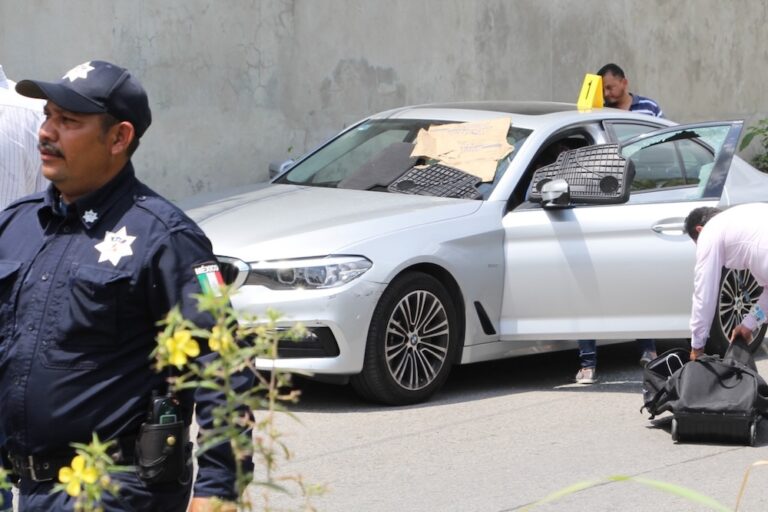(CPJ/IFEX) – The following is an abridged version of a 7 June 2008 CPJ special report: Three Killings, No Justice Special Report on Mexico by the Committee to Protect Journalists June 7, 2008 – Mexico is not at war. It is a democracy. And yet it is one of the world’s most dangerous countries for […]
(CPJ/IFEX) – The following is an abridged version of a 7 June 2008 CPJ special report:
Three Killings, No Justice
Special Report on Mexico by the Committee to Protect Journalists
June 7, 2008 – Mexico is not at war. It is a democracy. And yet it is one of the world’s most dangerous countries for the press. Twenty-one journalists have been killed in Mexico since 2000, seven of them in direct reprisal for their work. Since 2005, seven others have gone missing. Mexico ranks 10th on CPJ’s impunity index, along with such war-ravaged countries as Iraq, Somalia, and Sierra Leone.
The impact of this unchecked record of violence is well known and well documented. Fear permeates newsrooms and broad self-censorship is the result. In border cities, where the drug cartels hold sway, gunbattles in the middle of downtown go unreported. There is little doubt that organized crime associated with the drug trade is responsible for much of the violence against the press. But the failure of the Mexican government to fully investigate these crimes and bring the perpetrators to justice has created a culture of impunity that perpetuates the cycle of violence.
CPJ commissioned this report because we wanted to take a close look at the factors that prevent these cases from being solved. CPJ Mexico representative Monica Campbell has assembled dossiers on three emblematic cases – the killings of journalists Francisco Ortiz Franco in Tijuana, Bradley Will in Oaxaca, and Amado Ramírez Dillanes in Acapulco.
The circumstances of these killings were very different, as were the initial investigations. But all three shared certain characteristics. In Mexico, murder is a state crime and state prosecutors handled the initial investigations in all three cases. Because of shoddy police work, fear, or political pressure, the investigations failed to move forward. Federal authorities eventually stepped in and took over the Ortiz Franco and Will investigations but made little additional progress.
There has been much talk in Mexico of “federalizing” crimes against journalists by making it a federal offense to inhibit the exercise of freedom of expression or of the press. CPJ supports this proposal, first, because it would clarify the line of authority, ensuring that one agency has responsibility from start to finish. It would also create political accountability, with the federal government broadly responsible for protecting freedom of expression.
Would federalization of crimes against journalists ensure successful prosecutions? No. As these cases make clear, the problems are myriad, from the power of the drug cartels, to the dysfunctional judicial system, to crippling political rivalries.
Nevertheless, the current system is not working. Mexico confronts many problems, from the entrenched power of the drug cartels to the slow pace of economic growth. But there is no reason Mexico should remain one of the most murderous countries for the press. The federal government must take responsibility for addressing this problem, and it must devote political will and financial resources to ensure that the killers of journalists are brought to justice.
(. . . )
To read the full report, see: http://www.cpj.org/threekillings/index.html
Updates the Ortiz Franco case: http://ifex.org/en/content/view/full/76416
Updates the Will case: http://ifex.org/en/content/view/full/91369
Updates the Ramírez Dillanes case: http://ifex.org/en/content/view/full/90362


